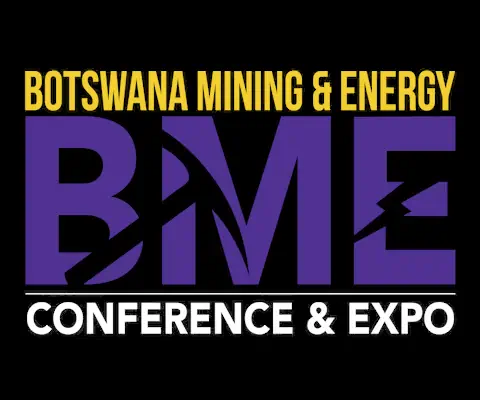Environmental aspects of primers and prospects for their improvement
![]() V.V. Zhulikov1 , V.A. Tikhonov1, G.A. Dudnik1, D.I. Mikheev2, N.I. Akinin2
V.V. Zhulikov1 , V.A. Tikhonov1, G.A. Dudnik1, D.I. Mikheev2, N.I. Akinin2
1 AZOTTECH LLC, Moscow, Russian Federation
2 Mendeleev University of Chemical Technology, Moscow, Russian Federation
Russian Mining Industry №5 / 2023 р. 66-70
Abstract: The main primers in the mining industry are blasting caps with highly toxic energy-intensive priming materials based on lead compounds. Unfortunately, behind the detailed complexity of modern approaches to calculate the environmental damage, it is rather difficult to assess the specific indicators of lead emissions from the blasting caps, therefore, an alternative option is presented, which allows to demonstrate a more explicit equivalent of the negative consequences. Analysis of statistical data on production and consumption of lead-containing primers indicates their significant contribution to the total and annually increasing pollution of the environment with lead, emphasizing the need to seek alternative energy-intensive priming materials. The current stage of global engineering and technological development has witnessed alternative primers already introduced into production and use, but still somewhat controversial in terms of some performance specifications and manufacturing technologies, which are utilizing new compounds that do not contain heavy metals. They are also based on fundamentally new methods of blast initiation in energy-intensive materials, in particular, using the effects of radiation from optical quantum generators (lasers). The combination of the presented environmental factors and scientific and technological achievements point to the need to intensify domestic research and development to replace highly toxic primers.
Keywords: lead, contamination, environmentally toxic, promers, lead azide, safe primers, detonator, environmental friendliness
For citation: Zhulikov V.V., Tikhonov V.A., Dudnik G.A., Mikheev D.I., Akinin N.I. Environmental aspects of primers and prospects for their improvement. Russian Mining Industry. 2023;(5):66–70. (In Russ.) https://doi.org/10.30686/1609-9192-2023-5-66-70
Article info
Received: 12.09.2023
Revised: 02.10.2023
Accepted: 04.10.2023
Information about the authors
Viktor V. Zhulikov – Head of the Design Office, AZOTTECH LLC, Moscow, Russian Federation, e-mail: This email address is being protected from spambots. You need JavaScript enabled to view it.
Vitaly A. Tikhonov – Director General, AZOTTECH LLC, Moscow, Russian Federation, e-mail: This email address is being protected from spambots. You need JavaScript enabled to view it.
Gennady A. Dudnik – Technical Director, AZOTTECH LLC, Moscow, Russian Federation, e-mail: This email address is being protected from spambots. You need JavaScript enabled to view it.
Denis I. Mikheev – Cand. Sci. (Eng.), Associate Professor, Department of Technosphere Safety, Mendeleev University of Chemical Technology, Moscow, Russian Federation, e-mail: This email address is being protected from spambots. You need JavaScript enabled to view it.
Nikolay I. Akinin – Dr. Sci. (Eng.), Professor, Head of the Department of Technosphere Safety, Mendeleev University of Chemical Technology, Moscow, Russian Federation, e-mail: This email address is being protected from spambots. You need JavaScript enabled to view it.
References
1. Dobrynin A.A. Explosives. Chemistry. Compounds. Safety. Moscow: ID Zhukovskogo; 2014. 527 p. (In Russ.)
2. Khmelnitsky L.I. Reference book on explosives. Moscow; 1962. Part 2. 829 p. (In Russ.)
3. Karpov P.P. Средства инициирования. Moscow: Oborongiz; 1945. 272 p. (In Russ.)
4. Ilyushin M.A., Kotomin A.A., Dushenok S.A. “Green” energy materials and their laser initiation. In: Petrov Yu.V. (ed.). Physical and chemical aspects of limit states and structural transformations in continuous media, materials and technical systems. St. Petersburg: Politekhnika; 2018. Iss. 2, pp. 42–50. (In Russ.) https://doi.org/10.25960/7325-1134-5.42
5. Sudarikov A.M., Ilyushin M.A., Shugalei I.V., Smirnov A.V. Low-toxic energy compounds for industrial primers.Emulsion explosives. In: XXI Vishnyakov Readings: Proceedings of the International Scientific Conference, Boksitogorsk, April 20, 2018. Boksitogorsk: Pushkin Leningrad State University; 2018, pp. 182–187. (In Russ.)
6. Ilyushin M.A., Kotomin A.A., Dushenok S.A. Energy-intensive metal complexes. Khimicheskaya Fizika. 2019;38(2):24–44. (In Russ.) https://doi.org/10.1134/S0207401X19020079
7. Gilmanov R.Z., Falyakhov I.F., Gilmanova T.B., Khairutdinov F.G. Development of environmentally safe primers. Herald of Technological University. 2012;15(13):55–56. (In Russ.)
8. Deng M., Feng Y., Zhang W., Qi X., Zhang Q. A green metal-free fused-ring initiating substance. Nature Communications. 2019;10(1):1339. https://doi.org/10.1038/s41467-019-09347-y
9. Herweyer D., Brusso J.L., Murugesu M. Modern trends in “Green” primary energetic materials. New Journal of Chemistry. 2021;45(21):10150–10159. https://doi.org/10.1039/d1nj01227d
10. Tariq Q.-u.-N., Manzoor S., Tariq M.-u.-N., Cao W.-L., Dong W.-S., Arshad F., Zhang J.-G. Synthesis and energetic properties of trending metal-free potential green primary explosives: A review. ChemistrySelect. 2022;7(17):e202200017. https://doi.org/10.1002/slct.202200017
11. Lei C.-J., Yang H.-W., Xiong H.-I., Cheng G.-B. The unique synthesis of a green metal‐free primary explosive: 3,3'-azo-5,5'-diazido-1,2,4triazole. Propellants, Explosives, Pyrotechnics. 2020;45(3):416–421. https://doi.org/10.1002/prep.201900283
12. Gilmanov R.Z., Khusainov R.M., Kilina A.M., Trukhan O.V., Atashev Yu.M., Pozdnyakov S.A., Yakushev N.V., Kondratev S.A. Method of producing diazodinitrophenol. RF Patent No.2728133/28.07.2020. (In Russ.) Available at: https://yandex.ru/patents/doc/RU2728133C1_20200728
13. Baskakov Yu.M. Korolev V.P. Fogelzang A.E. Bibnev N.M. Kolesov V.I. Egorshev V.Yu. Ageev V.N. Khovanskov V.N. Method of producing diazodinitrophenol. RF Patent No.2151134/20.06.2000. (In Russ.) Available at: https://patenton.ru/patent/RU2151134C1
14. Ilyushin M.A., Shugalei I.V., Tselinskii I.V., Garabadzhiu A.V. Some environmental issues in using energy-intensive compounds as promers and ways to address them. Ekologicheskaya Khimiya. 2012;21(3):154–163. (In Russ.) Available at: https://thesa.ru/chemjournals/eco/a/ecol_154.pdf





